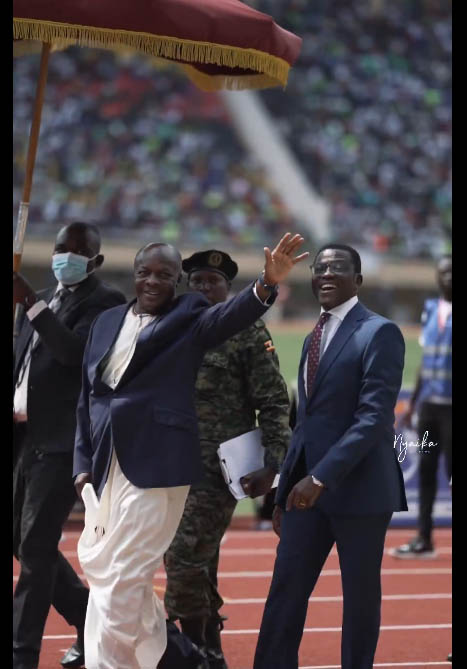
The kingdom’s legacy continues to inspire pride among the Baganda, and its ability to adapt to modern challenges will determine its future.
COMMENT | Gertrude Kamya Othieno | The Buganda Kingdom, once a dominant force in pre-colonial East Africa, holds a unique place in Uganda’s history. Renowned for its centralised monarchy, economic strength, and military prowess, Buganda thrived as a political and cultural leader. However, the advent of British colonialism and the creation of Uganda as a nation profoundly changed Buganda’s standing. This essay explores whether the Buganda Kingdom can reclaim its former glory in today’s political landscape.
The Rise of Buganda
At its peak, Buganda’s centralised governance under the Kabaka (king) allowed it to expand its influence across East Africa. The kingdom’s fertile land and strategic location near Lake Victoria bolstered its agricultural economy and facilitated trade. Buganda’s strength made it attractive to foreign powers, and the British, in particular, saw an ally in the kingdom. However, this relationship came at a cost.
While the British modernised Buganda’s education and infrastructure, they also eroded its autonomy. The establishment of the Uganda Protectorate in 1894 subordinated Buganda to colonial rule. Despite benefiting from certain aspects of this relationship, Buganda’s political independence was diminished.
Post-Independence Struggles
With Uganda’s independence in 1962, Buganda hoped to regain some of its previous influence. The kingdom was granted semi-autonomy, and Kabaka Edward Mutesa II became Uganda’s first president. However, tensions quickly emerged between Buganda and the central government. Prime Minister Milton Obote, viewing Buganda’s power as a threat to national unity, moved to abolish the kingdom in 1966. For decades, Buganda’s political authority was reduced to a mere cultural relic.
In 1993, President Yoweri Museveni restored the Buganda monarchy, though only in a ceremonial capacity. The kingdom regained some cultural significance, but its political and economic power remained weakened.
The Buganda of Today
Buganda remains a significant cultural force in Uganda. The Kabaka is still revered, and the kingdom’s traditions and heritage play a vital role in the lives of the Baganda. However, with limited political influence. The Ugandan constitution recognises the kingdom as a cultural institution, but it lacks formal political power.
Buganda’s relationship with the central government remains contentious, particularly on issues like land and autonomy. The kingdom has long advocated for federalism, which would grant it greater self-governance, but this demand remains unmet.
Can Buganda Reclaim Its Past Glory?
Buganda’s prospects of regaining its former political dominance seem slim. Uganda is a diverse nation, and any attempt to restore Buganda’s supremacy could be seen as undermining national unity. Furthermore, modern governance does not favour regional kingdoms wielding political power.
However, Buganda has the potential to shape Uganda’s future in other ways. By focusing on cultural preservation and economic development, the kingdom can maintain its relevance in the 21st century. A stronger federalist arrangement could grant Buganda more control over its internal affairs, particularly on land and development issues, allowing it to thrive without seeking political dominance.
Conclusion
While Buganda is unlikely to reclaim its past political and military glory, its cultural influence remains strong. The kingdom’s legacy continues to inspire pride among the Baganda, and its ability to adapt to modern challenges will determine its future. Rather than returning to its historical power, Buganda can find new ways to lead in cultural and social development, ensuring its continued relevance in Uganda’s evolving society.
***
 Gertrude Kamya Othieno | Political Sociologist in Social Development (Alumna – London School of Economics/Political Science) | Email – gkothieno@gmail.com
Gertrude Kamya Othieno | Political Sociologist in Social Development (Alumna – London School of Economics/Political Science) | Email – gkothieno@gmail.com
 The Independent Uganda: You get the Truth we Pay the Price
The Independent Uganda: You get the Truth we Pay the Price



